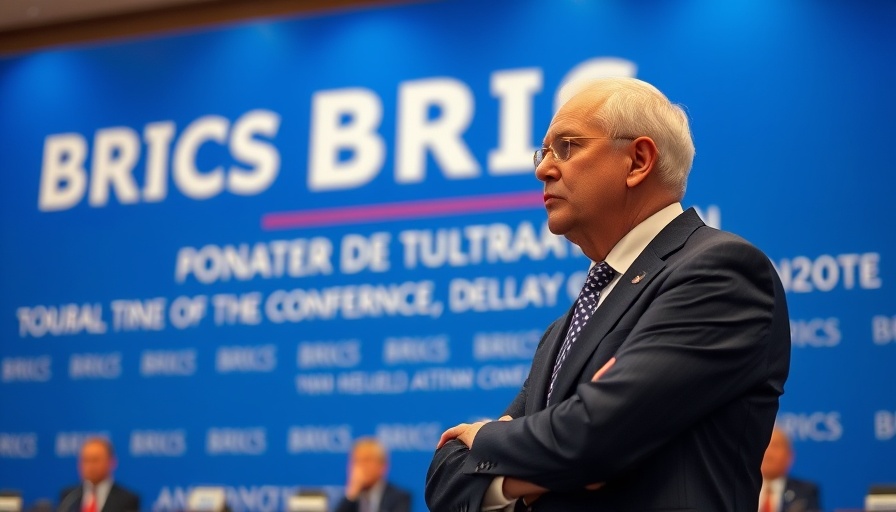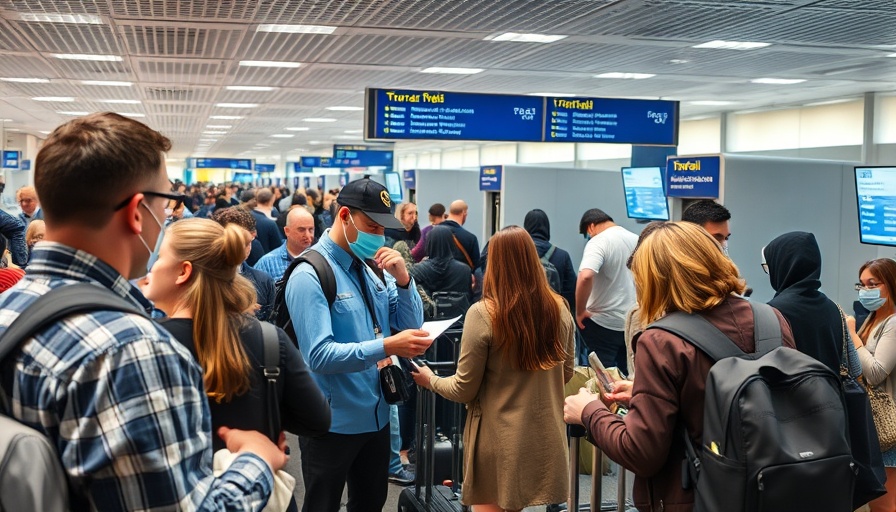
Brazil's Response: Tariffs and Tensions
In an escalating trade conflict, Brazilian President Luiz Inácio Lula da Silva has boldly declared his intent to match any tariffs imposed by the United States, following President Donald Trump's recent threat to levy a staggering 50% import tax on Brazilian goods. Lula's assertion comes amid heightened tensions, linked to the controversial trial of former President Jair Bolsonaro, a figure Trump has openly supported.
The backdrop of this trade disagreement hinges on Bolsonaro's treatment since losing the 2022 election to Lula. Trump's letter citing Bolsonaro as a respected global leader illustrates a strong alliance between the two former presidents. Lula, however, insists on Brazil's sovereignty and its right to independent institutional governance. He responded emphatically on social media, stating, "Brazil is a sovereign country...and will not accept any tutelage."
The Economic Implications of Tariffs
If enacted, the proposed increase in tariffs from 10% to 50% could severely strain Brazil's economy. The U.S. ranks as Brazil's second-largest trade partner, following China, and any significant increase in tariffs would disrupt critical supply chains and trade flows. Additionally, economic analysts project that Brazilian exports, which largely consist of agricultural products and minerals, could face serious downturns due to retaliatory measures.
In comparison, the U.S. imports several vital goods from Brazil, including coffee, iron, and petroleum, making the interdependencies between the two countries both delicate and crucial for each other's economies. While Trump asserts that the U.S. faces a trade deficit with Brazil, Lula counters this claim by highlighting U.S. government data indicating a goods trade surplus with Brazil of $7.4 billion in 2024. This disparity underscores the complexities involved in the tariff dispute.
Future Predictions: Trade and Alliances
As global dynamics shift, the ramifications of such tariffs extend beyond Brazil and the U.S. The situation raises questions about the future of international trade alliances. Countries might find themselves choosing sides amidst escalating confrontations between global powers, with nations being pressured to align with either the U.S. or emerging power blocs like BRICS.
This divide could shape trade relationships across continents, particularly in regions heavily reliant on Brazil’s exports. Significantly, Brazil plays a vital role in a number of international trade agreements, and a confrontation with the U.S. could lead to a reevaluation of these relationships and alliances.
The Broader Context: Trump and Bolsonaro’s Ties
Trump and Bolsonaro's shared ideologies have often placed them on similar paths. Trump’s overt support for Bolsonaro amid his legal troubles can be seen as a continuation of their political camaraderie. As the U.S. faces its own political challenges, Trump’s focus on Brazil could serve as a distraction or a means to rally his base by opposing a foreign “enemy.”
Insights on Global Trade Dynamics
The response from Brazil signifies a broader trend of countries asserting their sovereignty in the face of unilateral trade policies. As international trade becomes increasingly intertwined with domestic politics, nations will need to navigate these challenges carefully to maintain equitable trade relations. It's essential to recognize that negotiations are not just economic — they are deeply political.
This dynamic is expected to continue influencing global trade discussions, especially as countries assess the impacts of tariffs on their economic stability and international relationships.
Take Action: Stay Informed
Understanding global trade dynamics is vital in our interconnected world. The rapid developments in U.S.-Brazil trade relations remind us of the complexities that influence each of our daily lives. For continuous updates on pressing international issues, be sure to keep up with reliable sources and global news platforms that provide real-time insights on world happenings.
 Add Row
Add Row  Add
Add 




 Add Row
Add Row  Add
Add 

Write A Comment